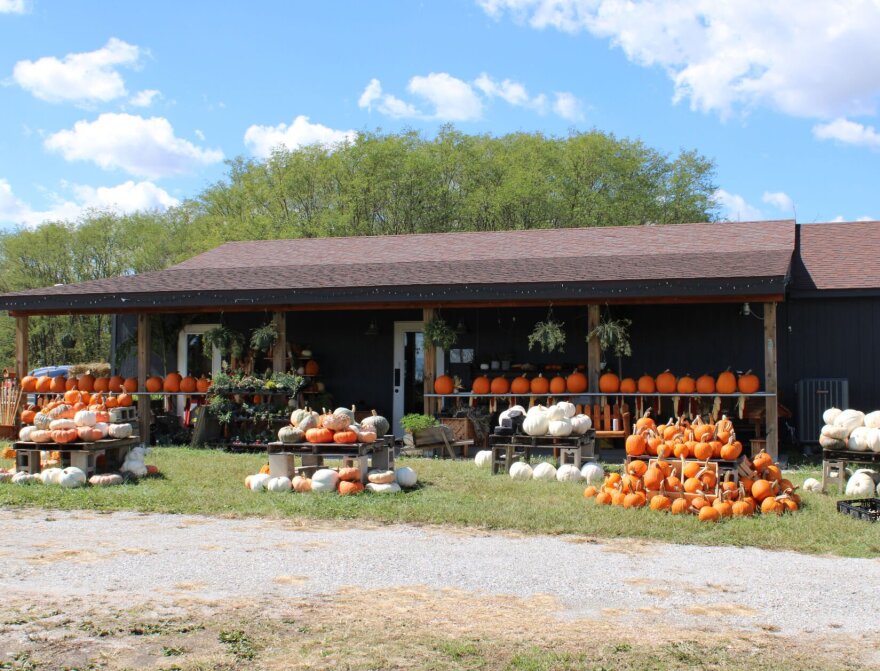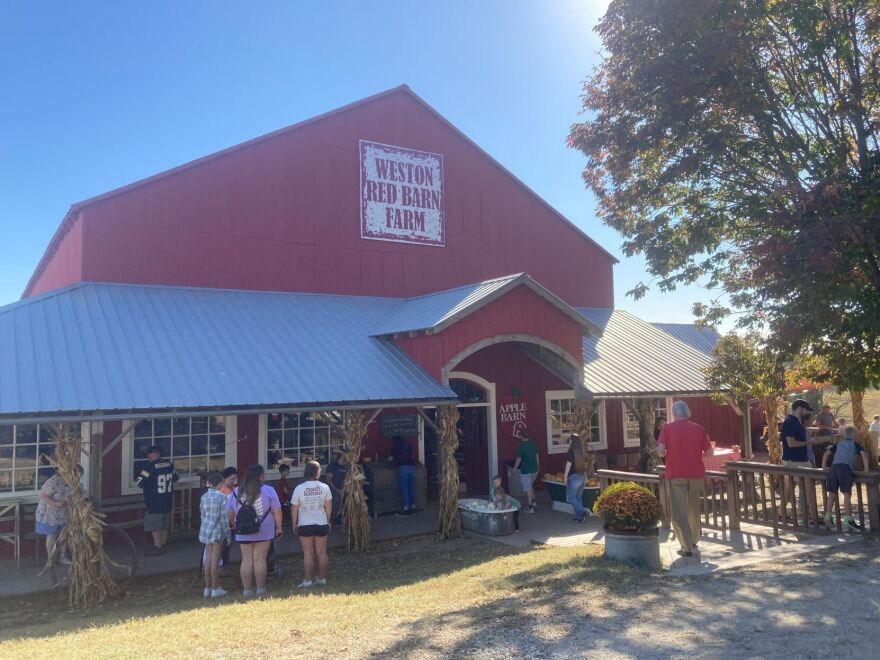For many, autumn is heralded in by cooler temperatures, football and a quintessential fall activity: visiting the pumpkin patch. Alongside bringing families together, these pumpkin patches often serve as core revenue sources for some farms.
For farmers like Allison Rupe, who owns The Patch by Rupe Family Farms outside Sedalia, Missouri, adding a pumpkin patch to her farm allowed for more opportunities to connect with the local community and more avenues to sell pumpkins.
“This was a good addition to our home farm,” Rupe said. “We've grown pumpkins on our home farm for 10 years, and we sell them all wholesale to the bigger cities before now. We decided that this was a good location and it was a good addition to sell some of those pumpkins retail to our customers, to be able to serve our local customers and also sell the entertainment factor in the fall.”
Pumpkin patches are often just one piece of the puzzle. The particular business model, dubbed agritourism, grew approximately 22% between 2017 and 2022, according to the U.S Department of Agriculture’s census data.
In 2022, Missouri’s agritourism industry brought in more than $19 million from 803 farms. The farms that fall into the category provide things like farm tours, seasonal activities, venue spaces and other recreational services.

Christine Faulkner, CEO of Faulkner’s Ranch in Kansas City, said that corporate events like company picnics are another key part of her family farm’s operations. After the isolation of the pandemic, she said being able to provide a safe outdoor space for people with activities year-round has helped to grow the business.
“I think (the company picnics have) been going really well the past several years, because workers don’t get out, and they don't interact much in the office like they used to,” Faulkner said. “Companies are trying to find ways to bring their people together face to face and we provide the venue for that and make it really easy for them.”
Many farms also lean into the educational opportunities that can be provided for schools and other organizations in addition to the operations of the main working farm. One such farm is Weston Red Barn Farm in Weston. Manager Angela Buckle attended one of the field trips to the farm in second grade and said that it was very impactful for her. Now, she’s excited to provide the same experience for other children.
“It's really centered on education,” Buckle said. “(Kids) get to have a great day and get to have fun and get out of the classroom. But it is an educational experience, it's not just a play day.”
Seasonal challenges

However, with farming, there are extra considerations that need to be taken into account that other businesses might not have to contend with. Fickle weather and upfront expenses are one factor, Rupe said.
“In farming, all of your expenses come out first thing in the year, you pay for your fertilizer, your seed,” Rupe said. “You're paying for help to plant the seeds. You're paying hours in tillage and everything out in the field. All of the expenses come out in the beginning of the year, and then you're just hoping that the crop is good enough to cover them at the end.”
Seasonal activities are also a niche market. Steve Frey, owner of Weston Red Barn Farm, said farms like his are an example of when families can work together in business, but advises others looking to do the same to find what differentiates them.
“I have folks that say we want to do this in our place,” Frey said. “And I'll say, ‘Okay, first thing you gotta do, what's going on around you? Do you have enough people in your area to do it? And how can you do it differently than the other guys you know?’”
Fluctuations in staffing are part of the business, too. Faulkner’s Ranch employs over 180 people during the peak fall season. While the ranch is fortunate to attract people who are enthusiastic about the business, it’s still a big responsibility to ensure that they’re properly trained Faulkner said.
“It's a lot of people to manage and keep happy and healthy as well,” Faulkner said. “When you are starting any business, it's not only about the outward facing the client, the customers. It's staffing. You're in the business of people as well.”
Training isn’t a one-size-fits-all procedure either. With seasonal farms having such diverse operations, employees need to be able to jump in anywhere, Buckle said.
“It's not a job you can come in and do two weeks of training and really jump out and do well,” Buckle said. “You really need a long time in the role before you start to feel comfortable. I'm two years in now, and I'm just now starting to feel like I can actually make adjustments and help grow or change things for the better.”
While it can take some time for workers to get acclimated, the diversity of seasonal farm operations can provide avenues for autonomy and staff input.
“The farm has so many outlets that need creativity and new ideas and just somebody that wants to try something, or has a big, bold idea,” Buckle said.
A Midwestern tradition

As farms in the U.S. continue to decline, with a 7% drop in the number of farms in 2022 according to USDA census data, owners noted the importance of preserving outdoor spaces like the ones their farms provide so people can connect.
“These places are just nice places, wholesome environments for families to come and just spend time together and get away and enjoy each other and have traditions,” Faulkner said.
Opening farms up to the public also helps people reconnect with where their food is coming from and could potentially inspire them to try raising chickens or their own garden, Buckle said
“It's one of those ‘touch grass’ moments,” Buckle said. “You need to get back to your roots and enjoy what a real farm is like. As things get more and more bought up, and there's less and less farming going on, people are exposed to it less.”
As times change, Frey said that for those starting out, having a good business plan is an important factor for long term success.
“In this world, one mistake could really ruin your setup,” Frey said. “When I started out, it was a lot easier to make mistakes and survive, whereas I don't think it is easy now.”
This story was originally published by the Missouri Business Alert, a fellow member of the KC Media Collective.





